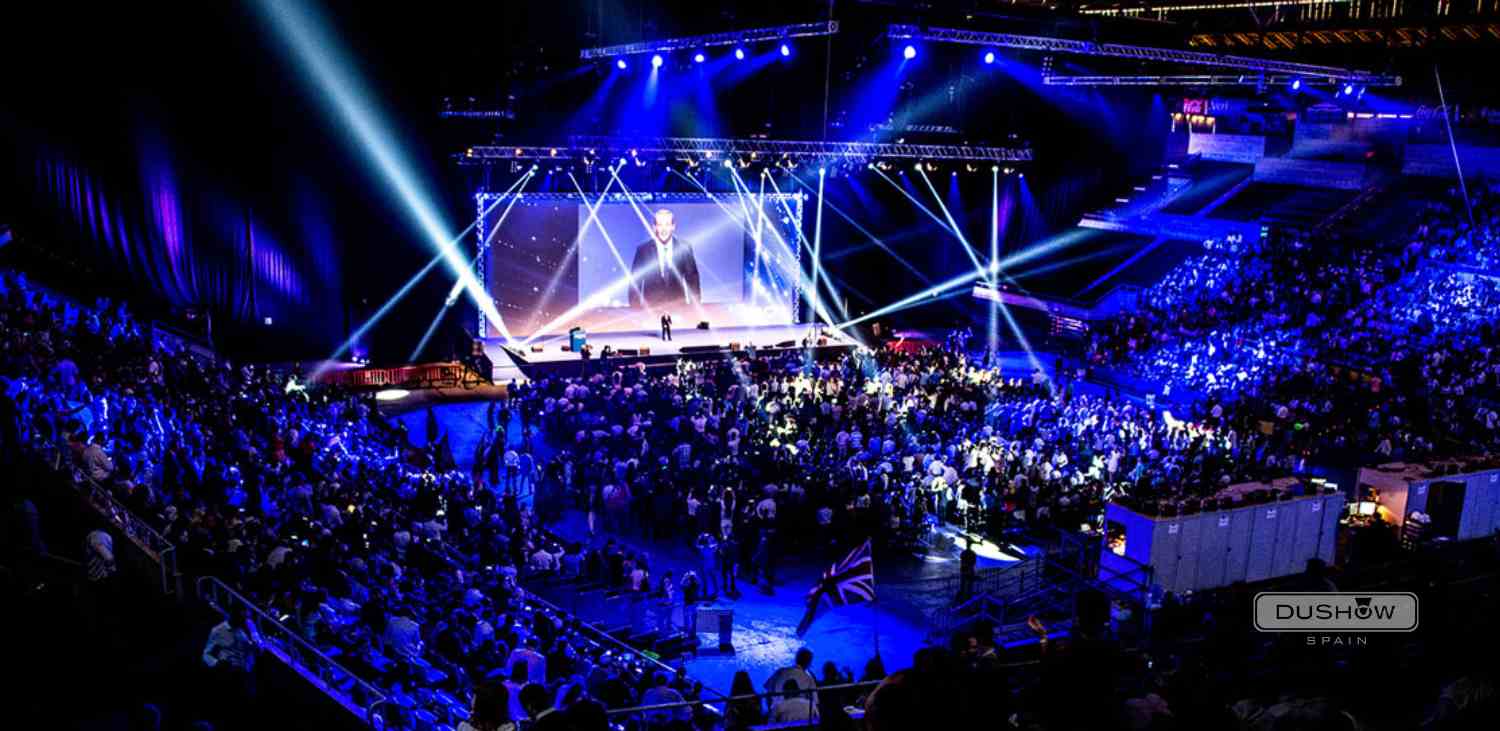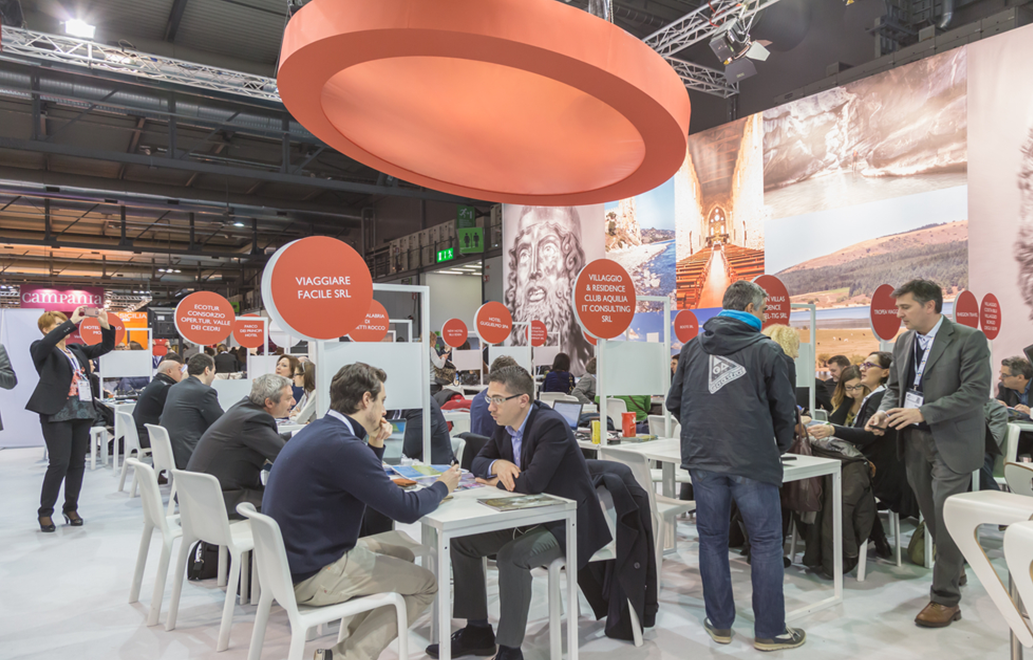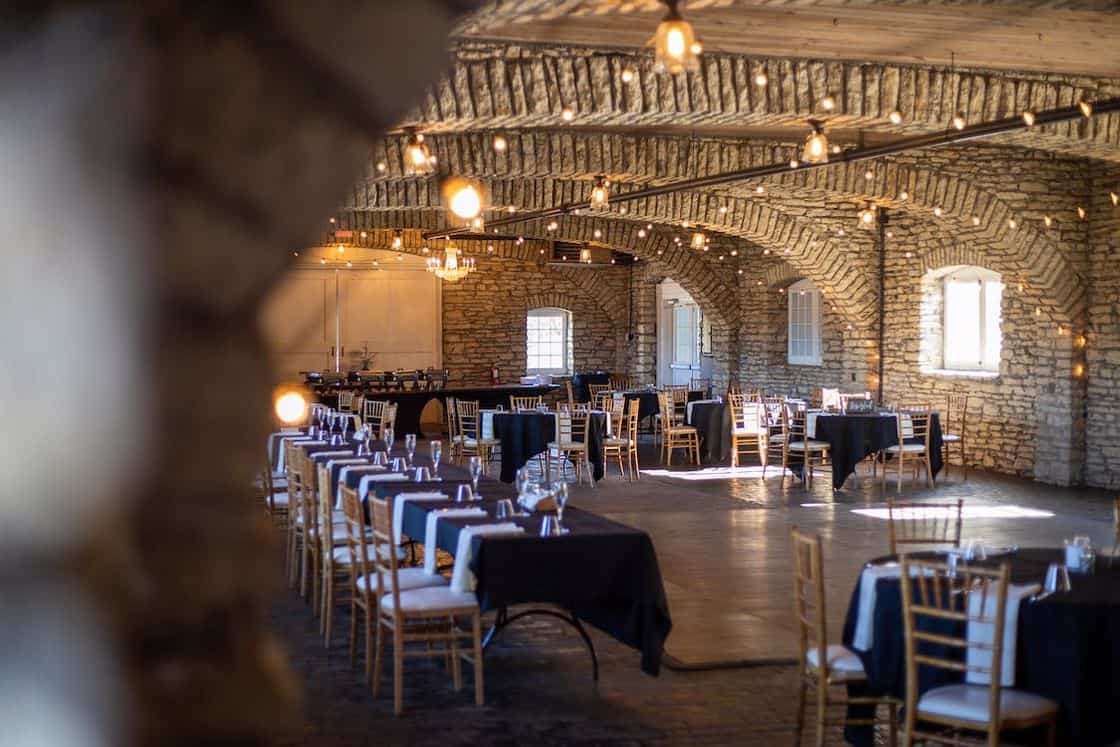Recognizing Event Production: Why It Is Necessary for Effective Events
Event production plays an important duty in shaping effective gatherings. It entails cautious preparation, sychronisation, and implementation to ensure every detail lines up with the event's vision. This procedure not just enhances attendee experiences yet also assists in meaningful links among participants. Understanding the details of event production can substantially influence the overall end result. What are the crucial elements that add to an effective event, and how can they be properly handled?
The Duty of Event Production in Creating Memorable Experiences
Although many variables add to the success of an occasion, event production plays a crucial role in crafting remarkable experiences. This diverse process encompasses various elements, including planning, logistics, and execution. Effective event production assurances that every detail straightens with the overall vision, producing a seamless circulation that captivates guests. By collaborating timelines, managing resources, and managing technological facets, event manufacturers develop a foundation for impactful experiences.Moreover, they curate environments that reverberate with the target market, enhancing involvement and emotional connection. From picking ideal locations to integrating cutting-edge innovation, the selections made during production considerably influence just how attendees regard and bear in mind the event. By prioritizing quality and interest to information, event production transforms common celebrations into extraordinary moments, leaving lasting impacts. Eventually, the skilled orchestration of these parts specifies the significance of an occasion, showcasing the importance of expert event production in accomplishing exceptional outcomes.
Key Elements of Successful Event Production
Reliable event production hinges on several crucial elements that assure success. Preparation and sychronisation develop a solid structure, while technical setup demands resolve logistical requirements. Additionally, implementing audience interaction approaches enhances the overall experience, making the event remarkable.
Planning and Control
Preparation and sychronisation function as the backbone of effective event production, ensuring that every detail straightens perfectly to develop a memorable experience. Reliable preparation entails establishing a clear vision and purposes, while coordination requires the precise organization of logistics, routines, and sources. A distinct timeline is necessary, guiding all stakeholders with essential milestones and tasks. Communication plays a pivotal duty, promoting collaboration among group members, suppliers, and location personnel. Routine conferences and updates help to deal with difficulties promptly, ensuring that everyone remains straightened with the event goals. Ultimately, an organized approach to planning and sychronisation not just enhances efficiency but additionally substantially adds to the overall success and pleasure of the event for attendees and coordinators alike.
Technical Configuration Demands
An effective event depends greatly on its technological setup demands, which include crucial parts such as audio-visual tools, lights, staging, and connection. Audio-visual devices includes microphones, audio speakers, and projectors, making sure that presentations and performances are provided clearly. Correct lighting improves the ambiance and highlights crucial areas, while staging gives the essential platform for audio speakers and performers. Connection, including Wi-Fi and electrical accessibility, is crucial for seamless communication and modern technology combination. Each component must be carefully planned and performed, customized to the event's details requirements. Inadequate technological arrangements can result in interruptions, negatively impacting the general experience for participants, emphasizing the relevance of complete preparation and focus to detail in event production.
Audience Involvement Strategies

The Value of Preparation and Control
Planning and coordination are essential to the success of any event production. Reliable timeline management, resource allocation strategies, and group communication characteristics play necessary duties in making sure that all elements collaborated flawlessly. Without an organized approach to these facets, events run the risk of facing delays, budget overruns, and miscommunication amongst staff member.
Effective Timeline Management


While effective event production typically depends upon creativity and implementation, reliable timeline administration stays a vital component that can not be overlooked. A well-structured timeline functions as the backbone of any event, guaranteeing that each stage is executed in a prompt way. It permits the control of various tasks, from place setup to visitor arrivals, while preventing prospective bottlenecks. By plainly detailing target dates and obligations, event coordinators can maintain emphasis and adapt to unexpected challenges. Additionally, a meticulously crafted timeline fosters communication among employee, advertising liability and cooperation. Inevitably, efficient timeline management not only enhances functional performance but also adds considerably to the overall success and smooth execution of the event, leaving participants with a memorable experience.
Source Allocation Approaches
Efficient resource allowance techniques are critical for the successful execution of any kind of event. Correct preparation allows event organizers to identify and distribute resources, such as finances, workers, and materials, in a manner that maximizes performance. By examining the details requirements of each aspect of the event, organizers can prioritize jobs and designate resources accordingly. Control among different departments ensures that all aspects, from dealing with audiovisual demands, are sufficiently supported. This critical strategy not just lessens waste yet additionally improves the general experience for guests. Furthermore, preparing for potential difficulties click site and having contingency plans in area enables smoother operations. Inevitably, effective source allotment contributes considerably to attaining event goals and guaranteeing an unforgettable gathering.
Group Interaction Characteristics
Just how can seamless interaction amongst group members change the event production procedure? Efficient communication is important for working with jobs, sharing updates, and addressing challenges in real-time. When staff member involve in open dialogue, they can rapidly identify prospective concerns and establish options collaboratively, minimizing delays and misconceptions. This vibrant fosters a cohesive atmosphere where everyone understands their functions and responsibilities, causing an extra synchronized effort. Furthermore, routine check-ins and responses loops boost accountability and guarantee positioning with the event's objectives. By prioritizing interaction methods, teams can improve workflows, boost spirits, and eventually raise the total quality of the event. Successful celebrations depend upon the ability to interact successfully, making it an important component of event production.
Enhancing Participant Interaction With Imaginative Design
Innovative style plays a critical role in enhancing guest involvement at events, as it fosters an immersive atmosphere that mesmerizes individuals' focus. By incorporating cutting-edge visuals, interactive components, and thematic decor, event coordinators can produce unforgettable experiences that reverberate with participants. Thoughtful design styles advertise activity and expedition, urging visitors to connect with screens and each other.Incorporating modern technology, such as augmented reality or live polling, more enriches the experience, allowing for real-time responses and communication. In addition, sensory components like lights, audio, and aroma visit can stimulate feelings and create a more engaging atmosphere.The usage of narration with style aids share the event's objective and message, making it much more relatable for participants. Inevitably, innovative layout not just improves interaction but also grows links among participants, leaving a long-term perception that prolongs beyond the event itself. This critical approach to layout is important for effective celebrations.
Handling Logistics for a Smooth Implementation
While the enjoyment of an event can attract guests in, managing logistics is essential to safeguard a smooth execution. This involves diligently working with various components, from place choice and layout to event catering and transport. Efficient logistics management ensures that all components align, permitting a smooth flow from enrollment to the final thought of the event.Additionally, a clear interaction plan amongst all stakeholders is necessary. This consists of personnel, suppliers, and volunteers, who have to be notified of their roles and responsibilities. Preparing for prospective obstacles, such as equipment failing or unanticipated weather, can additionally boost the event's success.Creating an in-depth timeline aids keep the group on the right track and enables timely changes. Ultimately, well-managed logistics not only promote a satisfying experience for attendees however additionally reflect the expertise and reliability of the organizers, adding to the overall success of the event.

The Effect of Innovation on Event Production
What role does modern technology play in forming contemporary event production? Technology has actually become a cornerstone of efficient event production, improving both planning and implementation processes. From innovative registration systems to interactive applications, innovation go to website improves participant administration and improves interaction. Virtual event systems allow coordinators to reach bigger audiences, damaging geographical barriers and promoting hybrid gatherings that incorporate in-person and on the internet experiences.Additionally, audiovisual innovations, such as high-def screens and stereos, boost the high quality of discussions and performances, making certain an unforgettable experience for participants - event production charlotte. Social network assimilation enables real-time comments and communication, fostering neighborhood involvement before, throughout, and after the event. Furthermore, data analytics devices assist organizers in monitoring participant habits and choices, making it possible for tailored experiences that reverberate with varied audiences. In general, the combination of modern technology in event production not just improves operational effectiveness however additionally improves participant experiences, ultimately adding to the success of the event
Evaluating Success: Determining the Results of Your Event
Success in event production rests on reliable analysis, which involves gauging a range of outcomes to analyze the general effect of an occasion. To achieve this, coordinators can use both qualitative and quantitative metrics. Quantitative steps might consist of attendance numbers, ticket sales, and revenue produced, while qualitative evaluations may involve guest contentment studies and responses forms.Additionally, assessing social media involvement and media insurance coverage can provide insights right into the event's reach and brand name effect. Comparing these metrics against predefined objectives aids identify if the objectives were met.Furthermore, post-event debriefs with the planning group can discover lessons learned and areas for renovation. By methodically examining these results, event producers can boost future celebrations, making sure continuous growth and success. Inevitably, an extensive analysis not only highlights achievements yet likewise notifies strategic choices for subsequent events, fostering a society of excellence in event production.
Regularly Asked Inquiries
What Credentials Should an Event Manufacturer Have?
Event producers need to possess solid business skills, creativity, and efficient communication capabilities. A background in job management, budgeting, and negotiation is crucial. Appropriate certifications and experience in diverse event kinds even more boost their credentials.
Exactly How Can I Lower Event Production Expenses Successfully?
To effectively minimize event production prices, one can streamline supplier selection, discuss agreements, utilize internal sources, prioritize vital components, execute innovation for performance, and explore sponsorship chances to counter expenditures without compromising high quality.
What Are the Usual Obstacles in Event Production?
Common difficulties in event production consist of spending plan restrictions, logistical control, vendor management, time restrictions, guest involvement, technological difficulties, and unforeseen situations - event production charlotte. Each aspect can substantially influence the overall success and smooth execution of the event
How Do I Pick the Right Venue for My Event?
Picking the right venue involves considering elements such as location, capacity, facilities, and budget. Furthermore, assessing ease of access and atmosphere ensures the selected space aligns with the event's goals and boosts the total participant experience.
What Is the Regular Timeline for Planning an Event?
The typical timeline for planning an occasion differs, however normally includes phases such as principle growth, location choice, vendor coordination, promo, and last prep work, typically covering several months to ensure an effective implementation.